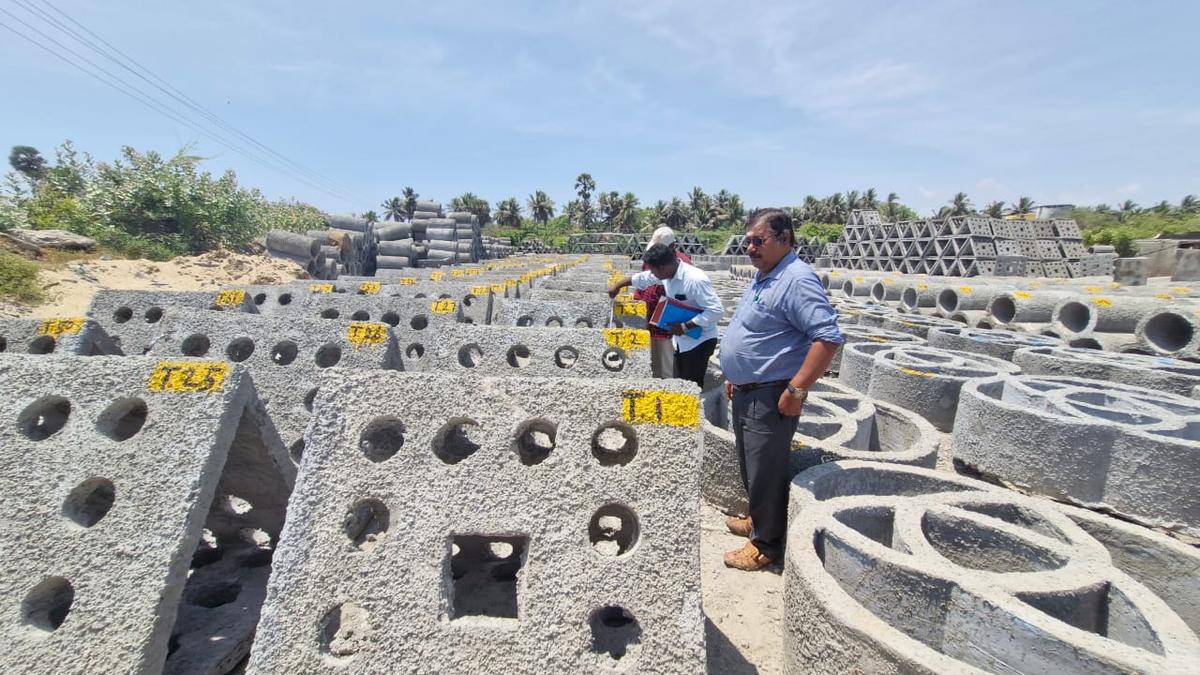
Fisheries department to install artificial reefs in Nagapattinam
The Hindu
The State Fisheries Department has planned to install artificial coral reefs in 39 locations across two fishing villages in Nagapattinam district to boost fish production
The State Fisheries Department has planned to install artificial coral reefs in 39 locations across two fishing villages in Nagapattinam district to boost fish production.
With a budget of ₹11.79 crore, the project is part of the Union Government’s Pradhan Mantri Matsya Sampada Yojana (PMMSY) and is being implemented with expertise from the ICAR-Central Marine Fisheries Research Institute.
The installation of artificial reefs is aimed at addressing challenges such as climate change and the declining fish population in coastal waters. Coral reefs, both natural and artificial, play a pivotal role in preserving marine ecosystems by supporting fish reproduction. Over time, sea moss accumulates on the artificial reef structures, mimicking natural habitats where fish can lay eggs, thereby boosting marine biodiversity.
According to D. Rajkumar, Executive Engineer of the Fishing Harbour Project Division Nagapattinam, the project includes fabricating and installing 180 artificial reef units at each of the 39 locations. These units, designed in various shapes such as triangular, circular, and ring forms, will be placed 10 nautical miles from the shoreline at a minimum depth of 10 metres. This ensures that fishing nets will not be damaged during fishing activities.
Mr. Rajkumar said the tender process was under way, with installation set to be completed by March. He said the reefs would take 3 to 5 years to develop, boosting fish production by at least 50%. Local fishermen will be informed of reef locations to avoid disruptions. Citing past success, he highlighted increased fish production from similar reefs installed last year in Mayiladuthurai. He called the initiative a sustainable solution to climate challenges, nearly as effective as natural reefs in supporting biodiversity and livelihoods.













